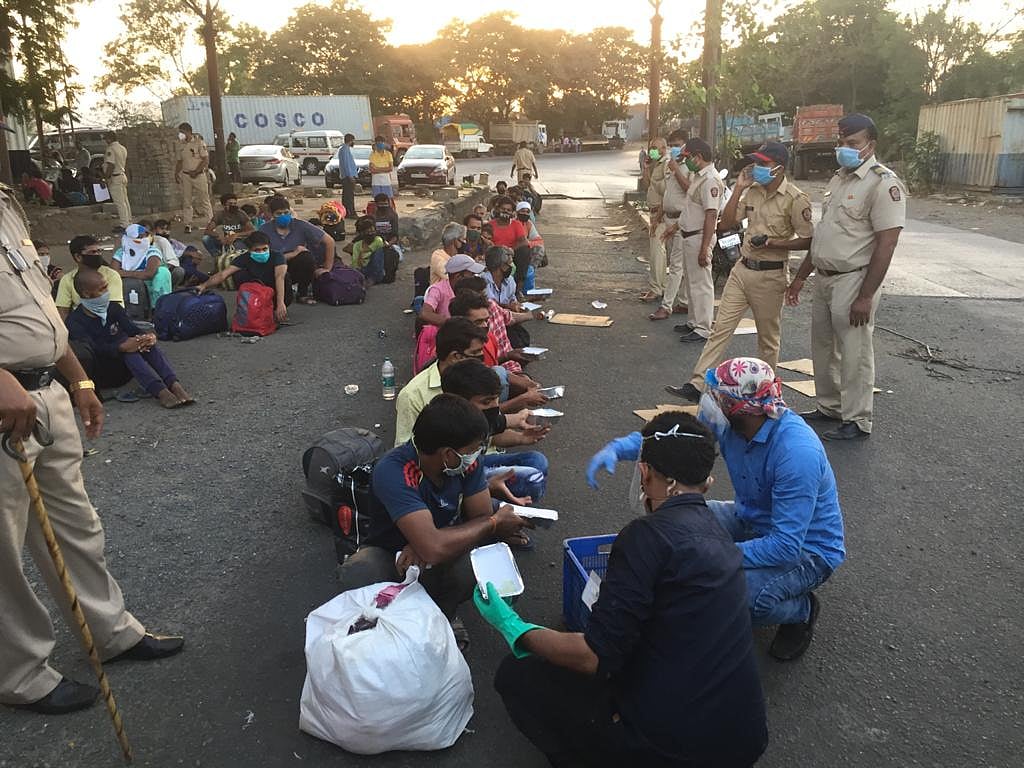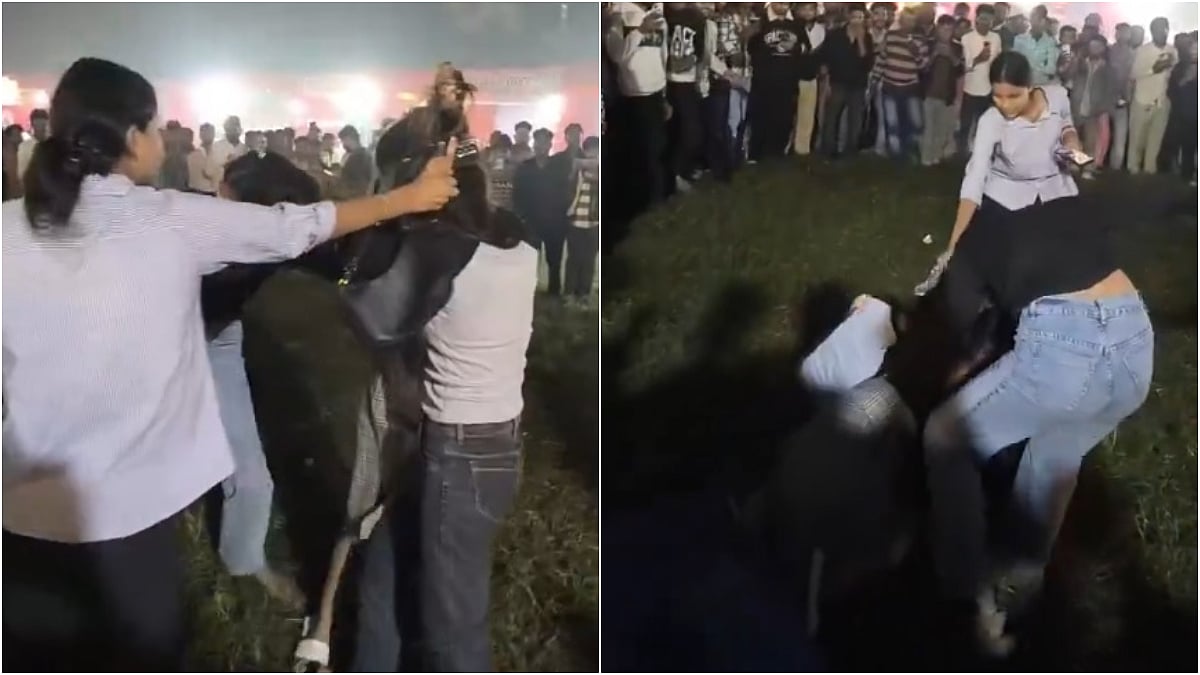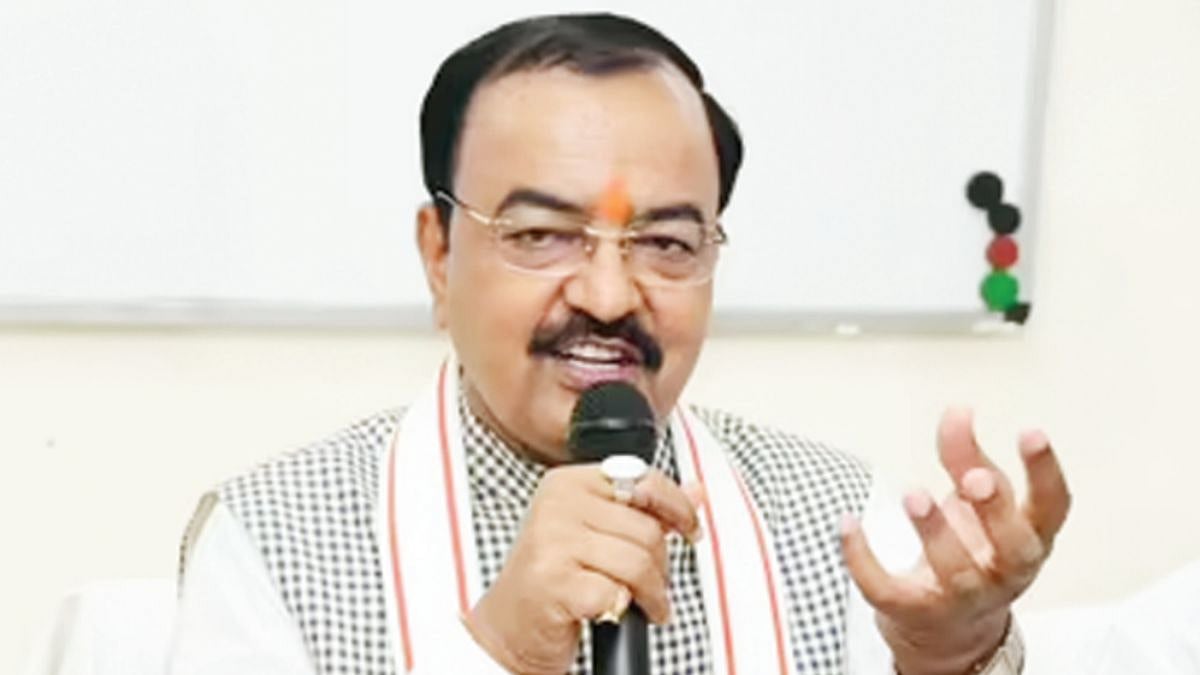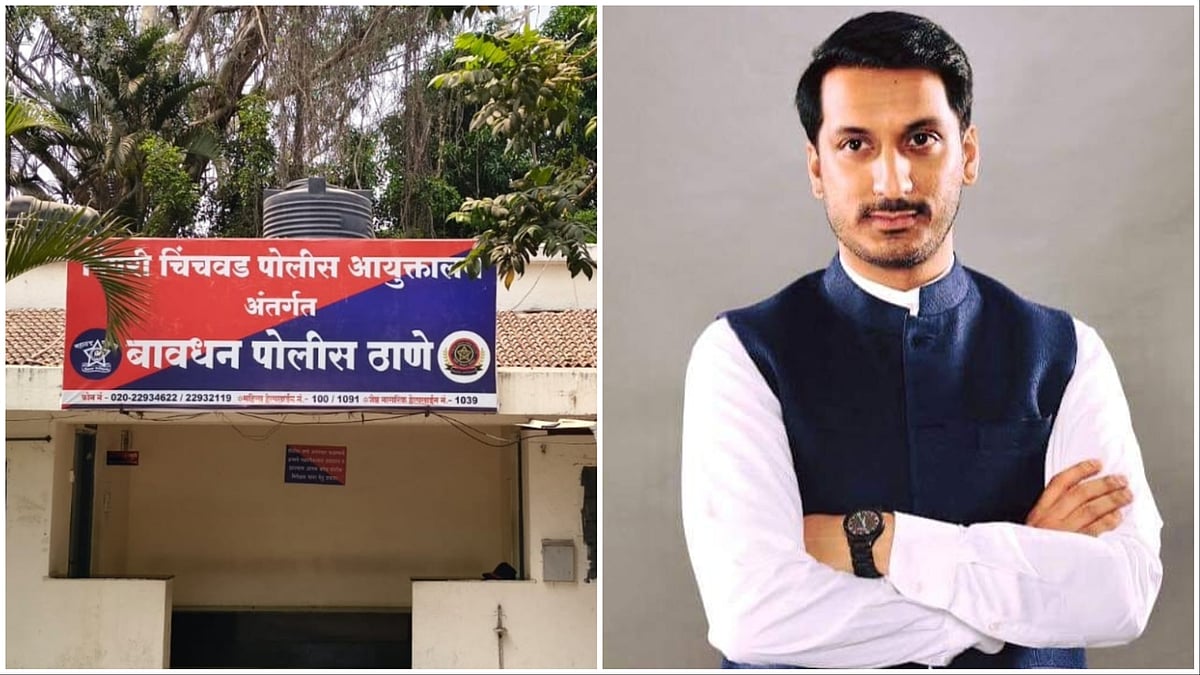I, Saumil Bharani, an accountant by profession, living in Tilak Nagar, Mumbai, have spent two months of the 2020 lockdown volunteering with Khaana Chahiye, a novel citizens’ initiative established to provide food relief to the underprivileged and vulnerable communities in my home town of Mumbai, Maharashtra, India. My involvement in this activity began in the context of the novel coronavirus pandemic and the ensuing lockdowns that crippled India and the world in 2020.
The virus and the lockdown
The rapid spread of the pandemic, on account of the highly communicable nature of the contagion, forced governments around the world, including India, to announce unprecedented and unforeseen lockdowns, forcing the population to stay indoors at home for weeks and months together, in order to contain the advancement of the infection spread and relieve the pressure on healthcare systems, already struggling to cope with the deluge of infected patients.
One of the most stringent of such lockdowns was declared nationwide in India, on the evening of 24th March, 2020, and went into effect from midnight.
The restrictions included complete closure of all non-residential spaces including workplaces, schools and colleges, places of worship, recreational spaces. All forms of travel and commute were immediately suspended, except for supply of essential goods and services, specified under an exhaustive list.
At the outset, this left many people stranded far away from their homes.
While doctors and healthcare workers bravely battled the disease in hospitals and health clinics, the police and other security forces were entrusted with the lockdown enforcement on the streets. Additionally, the part of the workforce employed in the logistics of essential goods and service, were on duty, all braving the constraints brought by the strict enforcement as much as the threat to their health and lives. Anyone who put themselves at risk of exposure, would by proxy also extend the risk to their families and cohabitants residing with them. Yet they considered themselves fortunate to have the opportunity to continue to earn a living during the lockdown, while others were struggling to cope with the economic impact of lost income, depleted savings and unforgiving costs of living, particularly in case of the migrants from the countryside settled in cities to earn a living.
On one side there was neither a steady source of income nor an opportunity to travel back to villages because of the lockdown restrictions. On the other, they would struggle to put food on the table, pay rent or bills. Unlike the white collared middle classes, who would get by with some struggle, the crisis was severe for the blue-collared poor, specifically the urban poor, and aggravated with sequential and multiple extensions to the lockdown, a few weeks each time, as the contagion showed no signs of slowing down.
While the early cases of infected patients were those who had recently travelled to India from abroad and their immediate contacts, eventually the pandemic gripped the most densely populated urban clusters such as slums, transit camps and labor camps, where the economically backward communities live under harsh conditions. With up to a dozen people crammed in a small 10 ft x 10 ft room with a small window opening into a narrow slum alley, and with residents having to queue up for using the communal toilets, it was no surprise when these areas turned into hotspots or containment zones with a large number of infected patients coming into close contact with a large number of people leading to a rapidly spreading infection.
Since such places would be sequestered from the neighborhoods, there were also logistical challenges in the procurement of food and essential supplies, besides the grave financial distress.
Another affected section were the street dwelling destitute and the homeless, who would normally live off the generosity of kind passers by or patrons of places of worships. The lockdown had jeopardised their survival not only through the deprivation of food but also the hostility of the police and vigilantes who would force them to move from place to place just to stay the night.
While the governments and authorities tried to respond with aid and relief, it was late, inadequate, patchy and ineffective, leaving huge gaps to be filled by the non-government and non-profit sector comprising of NGOs, social workers, citizen volunteers and samaritans, all of whom had to navigate the challenges of working under strict lockdown restrictions and slow fundraising during the economic depression.
On the other side of the socio-economic divide, many urban white collared, office going professionals had the luxury of working from home on computers and phones, connecting with peers with various technological media. Unfortunately, due to the nature of my office set up and absence of business, I was deprived of the opportunity during the lockdown. The prohibition of house helps and servants in middle class colonies like mine, required the whole family to share some responsibility in house work and chores. Besides this, there was time for indoor hobbies and recreation only, since stepping out for anything other than shopping for essentials was not permitted. This left me with a lot of free time with nothing productive to do and reading and hearing about the brave contributions of the healthcare and security workers left me with a desire to participate.
At the same time, I was also reading about the plight of the poor all over the country and felt helpless about not being able to step forward to help out. There was a reason for me to sympathize with the stranded migrants in particular.
A week before the nationwide lockdown, our Prime Minister had announced a full day “Janata Curfew” to be observed on 22nd March, 2020, Sunday. My younger brother who was travelling in another state managed to board a long distance train on the evening of the 21st and arrived in Mumbai just in time to evade the sudden complete shutdown of all means of passenger transport announced on 22nd, with immediate effect. Had he missed the chance, he would be stranded far away with limited sustenance for an indefinite period of time.
Discovering 'Khaana Chahiye'
Finally on 5th April, when I came across an online news article about Khaana Chahiye, I immediately visited their website, and after a cursory background check, I signed up as a volunteer on their website. When I discussed this with my family, much to my surprise, not only were they supportive but also allowed me to use the family car for my volunteer work. After receiving a call from the volunteer enrollment team of Khaana Chahiye, it took a few days for me to go through the rigorous on boarding process, and I eventually began volunteering on 11th April.
With no known or familiar face to guide me through, I started off with a combination of excitement and anxiety. On my way from home to the dispatch in Bandra, I was turned back at a police check point for want of an essential services travel pass which I had applied for but was still under process. Thankfully, with a detour, I managed to reach my destination, where I picked up the safety gear provided by the project, in addition to my day’s consignment of cooked food packets.
What is 'Khaana Chahiye'?
Khaana Chahiye is a citizen’s initiative that was conceived by a group of friends in Mumbai upon the announcement of the lockdown on 25th March.It was founded by Ruben Mascarenhas and Pathik Muni along with Shishir Joshi, Neeti Goel, Anik Gadia, Rakesh Singh and Swaraj Shetty. The first day of service was 1200 cooked meals distributed to homeless persons living along the Western Express Highway, by four volunteers, on 29th March.
This was an eye opener to the driving party, who understood that there’s a citywide problem of hunger that needed to be addressed. Immediately they activated a full scale cooked food distribution project funded by corporate and individual donors, served by a network of kitchens, vendors and dispatch hubs, and executed by an army of motivated citizen volunteers (serving on field or remotely) supplemented with professional logistical support wherever required.
The original model involves fresh cooked hot food packed in individual packets or pouches, brought from various kitchens to a few centralised dispatch and distribution hubs, wherefrom volunteer drivers referred to as “Ninjas” pick up a pre-ordered quantity of packets to deliver and distribute to the homeless, slums, transit camps, labor camps, rehabilitation colonies and containment zones on specified routes, at lunch time on a daily basis.

The last meter distribution, particularly in slums and camps is executed by teams of local partners referred to as “persons of contact (PoC)” or “liaisons”, who are typically local NGOs or social workers. The distribution structure is divided into several zones, each led by a zone leader and having one or more drivers operating specific routes. Demand for food is also recorded through website registration, phone inquiries and personal references. Volunteer drivers also scout for additional demand along their drives. After verification and validation, any new demand is assigned to the respective zone / route which operates in the area.
We ensure that the food we serve is fresh, safe, sumptuous, nutritious and delicious, and try to provide variety in the daily menu, to overcome monotony. We usually rotate between / preparations like daal rice, khichadi, pulav, subzi with rice / roti / puri / pav etc.
How does one become a volunteer?
Like donations, volunteers are solicited, invited and on boarded through website, social media, personal references and other channels.
After understanding the volunteer background, skills interests, availability and constraints, they are on boarded through a thorough process which involves a brief orientation, safety training, explanation of scope of work and mode of operations, and job assignment as per requirements.
There are separate teams of volunteers responsible for specific operations such as fund raising and conversions, accounts and reporting, volunteer enrollment and management, demand management, kitchen operations, procurement, transport, warehouse, distribution and dispatch logistics, public relations and social media, permissions and liaising etc., all reporting to a core team of project co-founders and leaders.

There is no formal hierarchy or strict structure to the organization, every volunteer is treated as a peer, decision making authority is suitably delegated and volunteers are encouraged to take up additional roles and responsibilities beyond their assignments, on the basis of their skills or interest, on occasional or recurring basis.
The majority of our communications are through phone calls, WhatsApp messaging, zoom meetings, email and online file sharing.
Scaling up
As we scaled up, we also added supplementary items like bananas, biscuits, dry snacks, bottled water, drinks, soaps, masks, sanitizers, sanitary pads and sundry items received as donations in kind from manufacturers, distributors or sponsors.
Another mutation was to cater to specific demand in bulk quantities of cooked meals delivered directly from kitchens to clusters, ordered and sponsored by local authorities, people’s representatives, NGOs or other groups.
With the beginning of Ramadan, we began to serve food in the evenings too, for iftar, with the principle that one PoC or beneficiary should be served no more than one meal per day from us, so we can reach out to the maximum number of beneficiaries. As we expanded operations, we also added hired professional drivers and vehicles for our fleet of volunteers.
As the situation worsened during the second extension to the lockdown, in the month of May, there was a large scale exodus of desparate migrants who began to leave the city for their native villages, thousands of kilometers away with the very last bit of their savings. They were in such dire straits that they decided to undertake the risky journey on foot in the initial days, braving not just the summer heat, but also the police brutality and the uncertainty of resources along the way. Gradually, there were more people travelling in vehicles – first it was cycles, motorbikes, autorickshaws and cars, then it was private buses, trucks and tempos and finally the state transport buses.
We set up distribution desks at five road exit points of the city – Thane, Dahisar, Vashi, Kalamboli and Panvel, to serve such migrants cooked / dry food packets, fruits, biscuits, water and masks.
Later as Indian Railways began to operate Shramik Special trains to transport migrants to their villages, we had undertaken the responsibility of supplying food and water to the passengers departing from three railway stations – Bandra Terminus, Lokmanya Tilak (Kurla) Terminus and Chhatrapati Shivaji Maharaj Terminus, where our volunteers would work in shifts, often ending at 3 AM.

We have also been supplying non-cooked supplementary items to several orphanages across the city, on a weekly basis. With much efforts we have also managed to distribute thousands of weekly ration kits to beneficiary families.
Further, we have also catered to several ad hoc SOS demands from municipal and state authorities, requesting us to supply food to institutional quarantine facilities, homeless shelters, containment zones etc.
At the peak of our operations, we were serving more than one lakh (one hundred thousand) meals / beneficiaries daily and till date, we have served over 3.7 million meals in aggregate, including all the above operations.
Thinking back and looking forward
As we look back on our two and half month old journey, it is hard to believe what we achieved in such a short span of time, with limited resources and despite several obstacles. All of this was possible thanks to a combination of factors including generous donors (large and small), professional and competent kitchen and logistic partners, support from government authorities, partnership with other NGOs, robust PR and social media machinery, productive leveraging of technology etc.
But the single most important of all our resources has been “the right people”. We have assembled a group of highly qualified and competent volunteers having varied religious, communal, linguistic, gender, age and political identities and backgrounds but united by the common goal of public service. They have actually demonstrated capabilities beyond their domain of expertise (I for one have never handled operations before), and undertaken their assignments efficiently, impeccably and humbly.

Even though we have only scratched the surface of the necessity, I take great pride in commenting, what this patchwork of unrelated, untrained and unpaid volunteers has accomplished, is nothing short of moving mountains.
Reflecting on my own experience, I started off as a food delivery driver in the Central and Eastern suburbs, covering areas like Mahim, Dharavi, Sion, Wadala, Kurla, Chembur, Mahul and Mankhurd. Later, I was promoted to zone leader, coordinating the routes of hired drivers in my zones. At the peak, I have delivered 1400 meals in a single day and coordinated a total of 3500 in my zone. In May, while still coordinating my zone distribution, I was also deputed as a volunteer at the Thane migrant service point for a week. Thereafter, I also served a week at LTT station in the evening shift from 5 PM to 3 AM. And finally, I have taken up additional responsibilities of volunteer management and central distribution coordination, being a liason between kitchens, dispatches and zone leaders / route drivers.
On the whole I have been occupied with volunteering full time without a holiday from 11th April till 15th June. And now that I have resumed office, I am still involved part time as and when required.
The only resources I have brought to the project are my car and my time. In turn my takeaways are many.
The first one is the deep satisfaction. As part of our safety dress code, I would have to wear a full shirt (buttoned from collar to cuff), trousers, slip on shoes, double face masks, sunglasses, plastic face shield, sun cap and double gloves. All this in an Indian summer while driving around with cooked food without air conditioning in the car. And to top it a long, hot shower to wash out any trace of the contagious pathogen off my body. All this discomfort was somewhat alleviated by the once in a lifetime pleasure of driving on empty roads during the lockdown, notwithstanding the police check points.
But all this pales in the face of the relief that my work yields for my beneficiaries and the satisfaction it gives me. At times, I have been extremely fatigued physically, and the only antidote is the rush of adrenaline that this work gives me.

Also, the only thing more contagious than the coronavirus is the volunteer enthusiasm, initiative and effort. When you watch your peers work so hard to deliver, you’re motivated to chip in and share the burden. Another important angle for me is the learning experience and opportunity. Besides being a mid-career internship in operations management, this lockdown has been an eye opener and revelation for me, giving me a new perspective at life itself. Of all the thirty years of my life that I have spent in the city I was born in, I was living in a bubble and was aloof from the living environment of underprivileged communities, about whom I only had superficial knowledge.
The last two months gave me an up close and personal vantage point into their lives. I realised how far apart both our worlds are and what it means to be privileged. Driving in the lockdown has been the most insightful city tour.But as valuable as satisfaction and learning may be, they don’t come close to the most priceless reward for volunteering.
And that is the friendships and relationships I have cultivated with fellow volunteers and PoC’s and would love to carry for life. I have met most only a few times and others over phone only. But someone who would happily and selflessly devote their time and energy to solve problems for rank strangers, is who I want to count on as a friend for a rainy day.
Contrary to my initial anxiety, the lockdown has left me wealthier than before.







